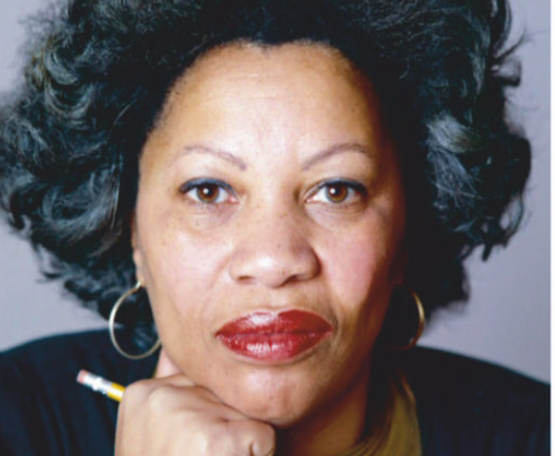Anger was not useful to dwell on. It was not creative. In interviews she suppressed it with steeliness, just as she guarded her words and herself from meddlesome intrusion. But she could explode at the craziness of racism, its distorting power, its pernicious notions of "purity", when the screaming red-mouthed baboon whites evoked lived under their own white skin.
老是生氣是沒有用的。那是沒有創作力的。在訪談中她冷酷地克制著自己,就像她保護自己的話語和自己不受干涉一樣。但是,當那些尖叫的紅嘴狒狒在自己的白皮膚下生活時, 她會對種族主義的瘋狂、其扭曲的力量和其有害的純潔概念勃然大怒。
Disappointingly she found it even among blacks, with their talk of mocha, hazelnut, onyx, tar- and silt-black. There was such compulsion in human beings to classify by type and clan, to suspect and hate the other, to refuse to vault the mere blue air that separated them. If oppression was no longer by actual ownership or actual violence, then language could be used to do the job with some efficiency. Politicians, misogynists, lawyers all knew how. Who could rescue language, ensure it stayed supple, strong and alive? That it was unarrogant, and would keep reaching towards the ineffable? Women could. Black women could.
她失望地發現這甚至也存在于黑人之中,就在他們談論摩卡,榛子,瑪瑙,焦油和粉黑色時。在人類中,有一種通過類型和宗族來給人分類的沖動,來懷疑和憎恨其他種類的人,拒絕讓那分隔他們的蔚藍的空氣消失。如果壓迫不再是由實際的所有權或實際的暴力造成的,然后,語言可以被用來做一些效率的工作。政治家,厭惡女人的人,律師都知道怎么做。誰能拯救語言,確保它保持靈活、強大和鮮活?使它不是傲慢的,能夠持續地達到言語不能描述的境地?女人能。黑人女性可以。

In her novels it was inevitably mothers, grandmothers, aunts, sisters who kept families and communities together with that mesh of loving bossiness: pull up your socks, comb your head, do your chores, hush your mouth. She'd done the same, raising two sons, fitting her writing into chinks in the endless round of work and domestication. In kitchens across the land black women stitched grey cotton, or poured soda into the crease of a palm to make biscuits. They brought order out of chaos, as her writing did.
在她的小說中,不可避免地是母親、祖母、阿姨、姐妹用愛發號施令的網把家庭和社區維系在一起: 加緊努力,梳頭,做你的家務,閉上你的嘴。她做了同樣的事情,養育兩個兒子,在無休止的工作和家庭生活中,她找到空隙來進行自己的寫作。在全國各地的廚房里,黑人婦女縫制著灰色的棉花,或者把蘇打水倒在掌心的皺褶里做餅干。他們在混亂中帶來了秩序,就像她的寫作一樣。
譯文由可可原創,僅供學習交流使用,未經許可請勿轉載。












